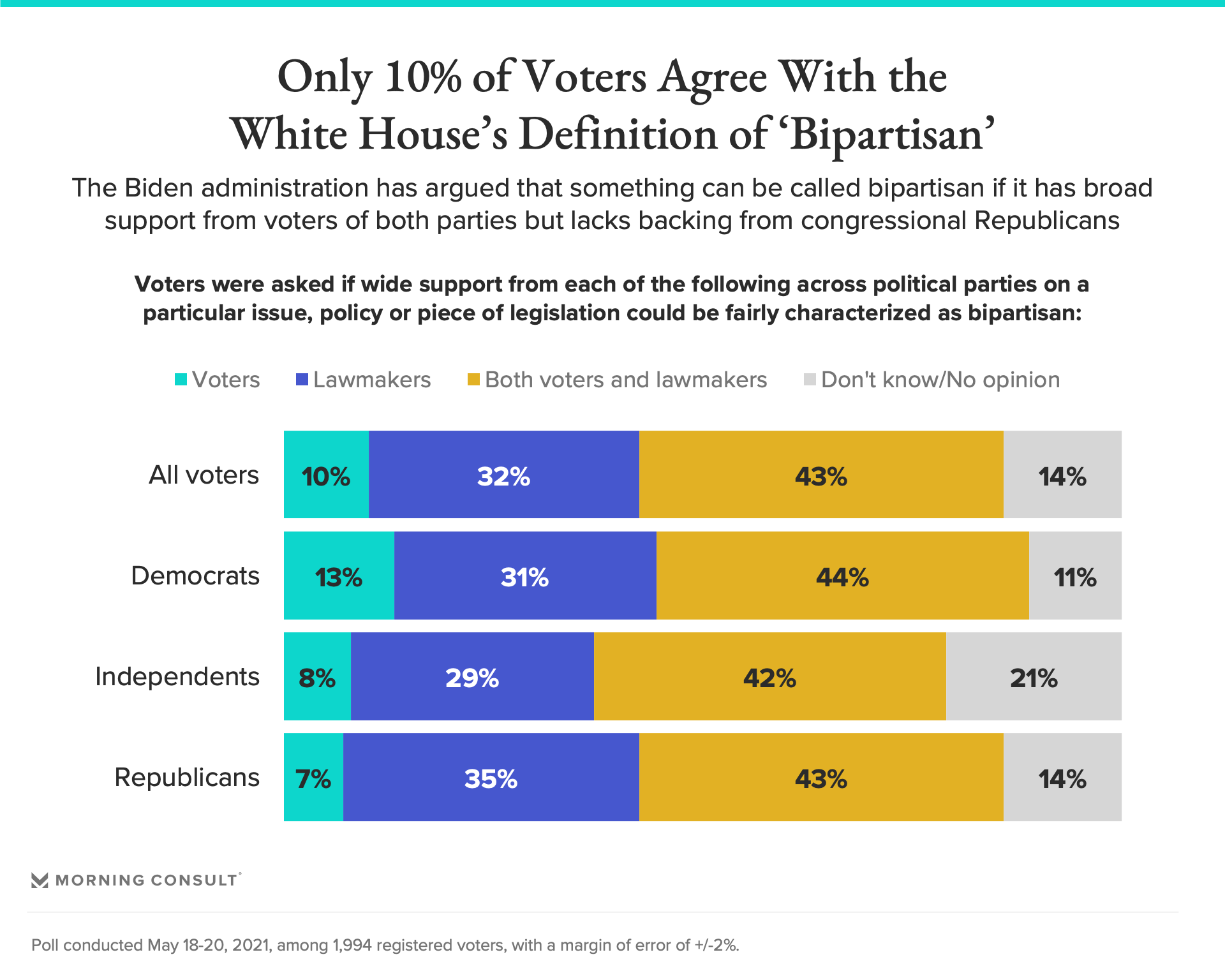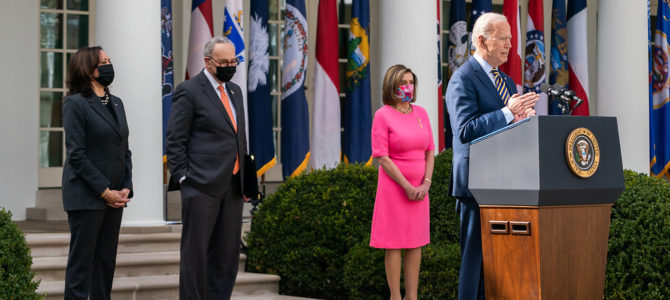Voters overwhelmingly rejected the Biden White House’s definition of bipartisanship, according to results of a new poll from the Morning Consult out Tuesday.
Biden adviser Anita Dunn outlined the new White House’s definition in April when she told the Washington Post the label “bipartisanship” applies to legislation with broad support outside Washington even in the absence of cross-partisan support on Capitol Hill.
“If you looked up ‘bipartisan’ in the dictionary, I think it would say support from Republicans and Democrats,” Dunn told the paper. “It doesn’t say the Republicans have to be in Congress.”
Voters rejected Dunn’s framing as she tried to spin the behemoth $1.9 trillion coronavirus spending package passed one month prior as “bipartisan” despite no Republican support which forced Vice President Kamala Harris to cast her first tie-breaker vote.
According to a survey of 1,994 registered voters conducted May 18-20, only 10 percent said they agreed with the White House on the meaning of bipartisanship, whereas 9 in 10 said otherwise. Only 13 percent of Democrats even supported the White House definition of the label in the survey with a +/- 2 percent margin of error.

The poll comes as Biden courts Republican lawmakers at the White House this week to hammer out a bipartisan infrastructure plan after the first five months of the new administration have set a new standard for what it means to aggressively pursue a partisan, progressive agenda.
On Wednesday, Biden is slated to meet with West Virginia Sen. Shelley Moore Capito, the leader of a Republican group of senators working to devise a bipartisan bill on infrastructure aiming to bring down the cost of the White House’s initial demand for a $1.7 trillion dollar proposal. Capito introduced a counter-offer at $1 trillion.
In early April, Senate Republicans blasted Biden’s plea for bipartisanship on infrastructure as bad-faith lip service after the White House staged a photo-op of lawmakers in the Oval Office. Shortly after the photo was taken, Democrats pulled the trigger on the budget reconciliation process to ram through a nearly $2 trillion dollar proposal in the absence of GOP changes and support.
“The Administration roundly dismissed our effort as wholly inadequate in order to justify its go-it-alone strategy,” a group of 10 Republican senators wrote. “Fewer than 24 hours after our meeting in the Oval Office, the Senate Democratic Leader began the process of triggering reconciliation which precluded Republican participation and allowed for the package to pass without a single Republican vote.”








